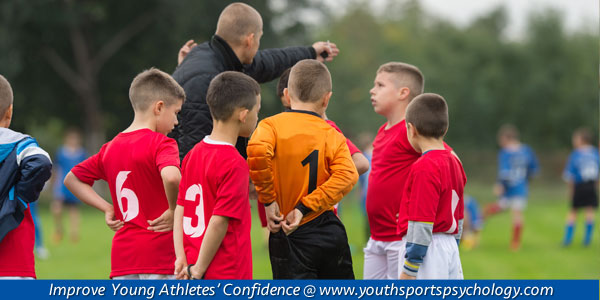
Sports Parents Who Experience Strong Emotions
It’s true sports parents too often get hot under the collar and yell at coaches, refs and even their sports kids during games. But critics need to show these parents some empathy and give them a break.
That’s the word from Nancy Peter, director of the out-of-school time resource center at the University of Pennsylvania who studied why parents can get out of hand in youth sports.
Peter is quick to confess that she found herself experiencing strong emotions when her son played competitive baseball. To better understand what was going on, she did some research into her local little league. She sent parents involved in the little league a survey, observed numerous games, and interviewed parents in person.
Peter concluded that many parents, like herself, experience strong emotions when they’re watching youth sports. These feelings are triggered by a number of factors—including pride, anxiety, and a primal drive to protect their kids, she says.
“Parents need to be aware of these strong feelings, learn to be good sports parents and moderate their behavior,” Peter says. “Feelings aren’t facts,” she says, “You don’t have to act on strong feelings; you have a filter.”
“My big recommendation is not to be punitive to parents but approach them with empathy. For some parents, this is a new experience,” says Peter. “They are not innately bad or insensitive.”
“Coaches and leagues need to give parents resources to help educate them,” Peter says. “In addition, coaches and leagues need to help parents brace for situations that will prompt strong emotions,” she says. “If there’s a high-stakes game, send a reminder to parents. ‘You will be stressed… Don’t humiliate or degrade children. Don’t get in the way of coaches.”
What’s more, Peter concluded that sports kids are more resilient than parents think they are.
“Over the years, kids learn to bounce back,” she says. “Parents sometimes don’t give kids credit for being able to bounce back. Instead, they’re over-protective. They end up embarrassing the child and removing the opportunity for the kid to cope,” she says.
Peter says parents are capable of changing their behavior.
“I did,” she says. “My feelings haven’t changed much, but my actions have changed.”
Want to learn more about how to be great sports parents, and to help your kids make the most of their sports experience?
At Kids’ Sports Psychology, we have loads of resources for you—including our interview with Peter. You can listen to hear about her own experiences, why and how she conducted her study, and what she concluded about sports parents.
To listen to the first half of the interview with Peter, use the player below:
Related Articles on Youth Sports:
- How to Help Athletes Break Out of Losing Streaks
- Sports Parents: Learn from Simone Biles’ “Twisties” During the Olympics?
- How Parents Can Encourage Kids Without Pressure
*Subscribe to The Sports Psychology Podcast on iTunes
*Subscribe to The Sports Psychology Podcast on Spotify
Help Young Athletes Boost Confidence in Sports!
Every day, we receive letters from parents like you who want their children and teens to excel in sports. However, these parents can see fear, doubt, and frustration on the faces of their kids who struggle with the “inner” game of sports. But these parents have no idea how to help their kids overcome the worries, expectations and self-defeating thoughts that prevent their young athletes from feeling confident and successful.
You can benefit from our 15-plus years’ of work in sports psychology and sports parenting research. Now, you can tap into our secrets to sports success through a cutting-edge, 14-day program that helps young athletes overcome the top “mental game” challenges that sports parents face—and the top challenges young athletes face.


“sports kids are more resilient than parents think they are”
I think that is very true. You don’t have to protect your kids from losing their whole life. If they can learn how to handle a loss with dignity and sportsmanship they’ll learn skills that can help them for the rest of their life.